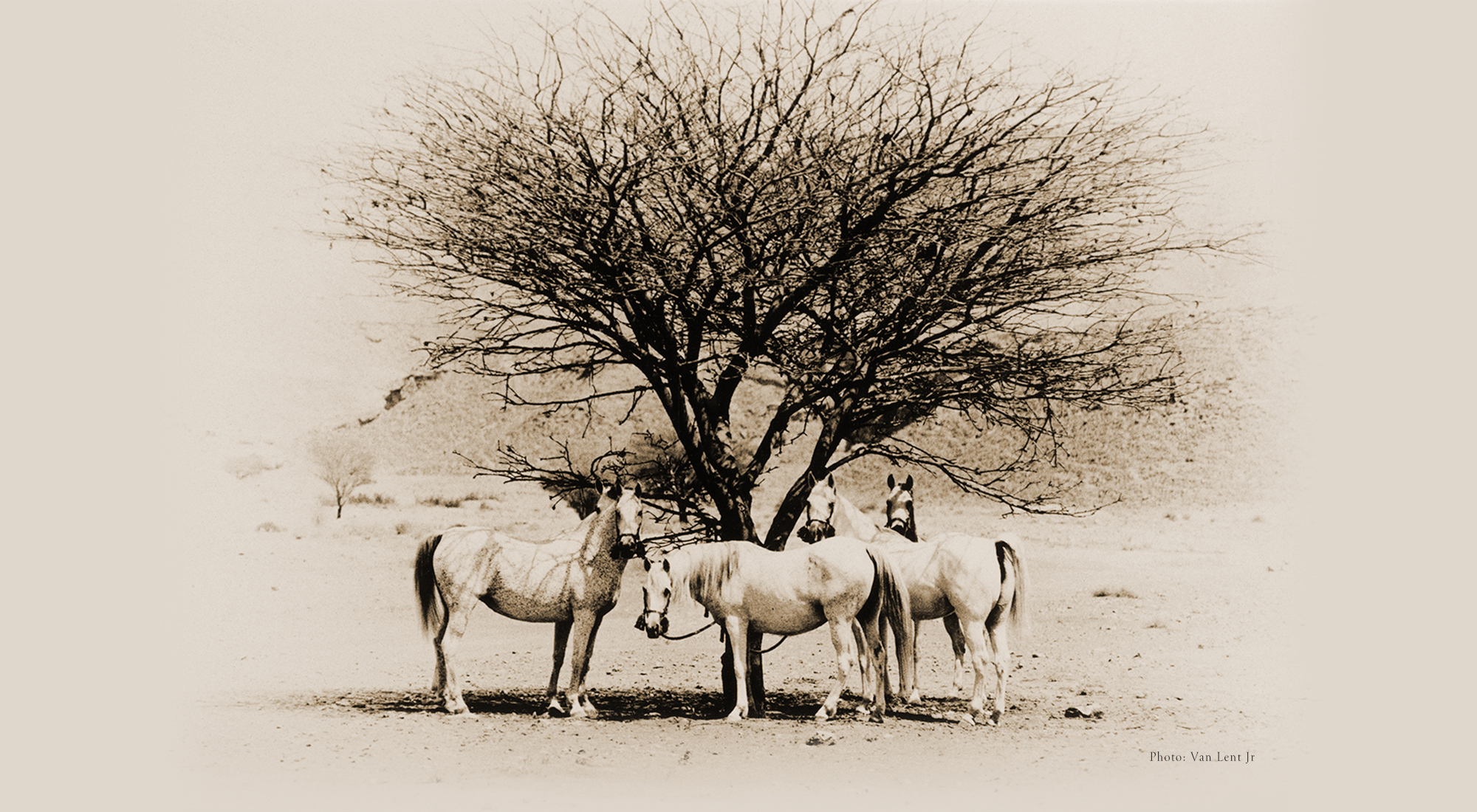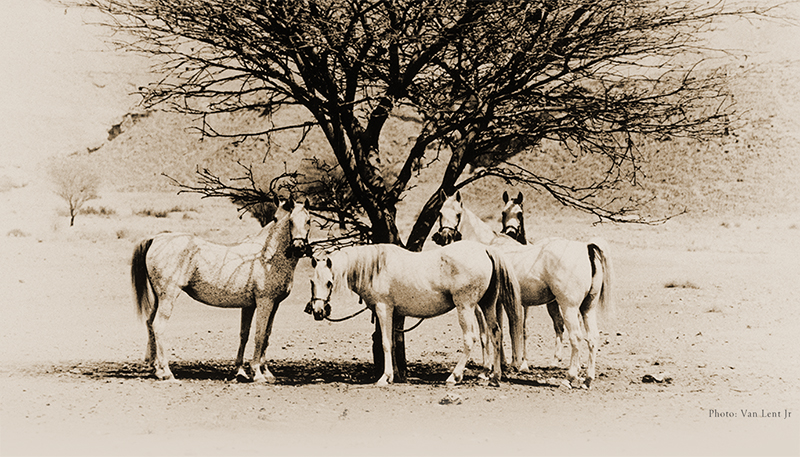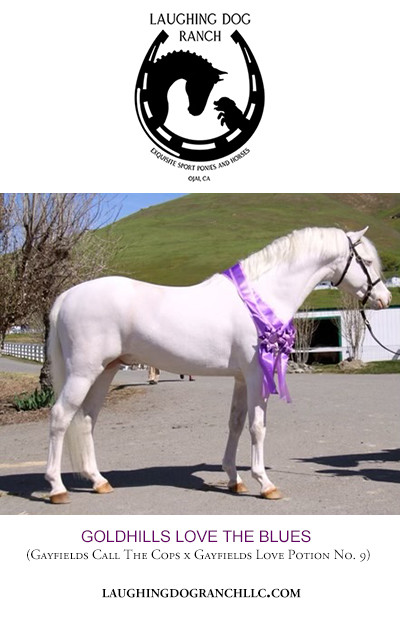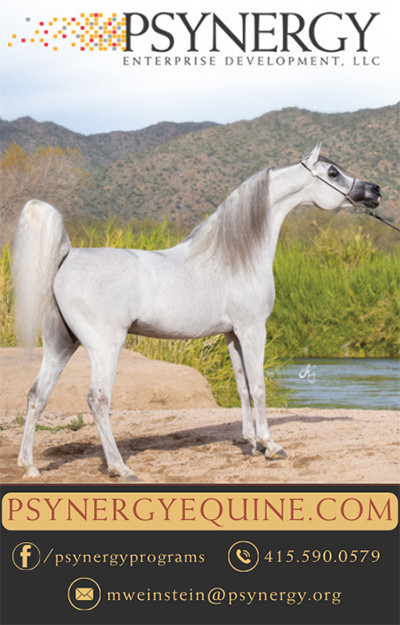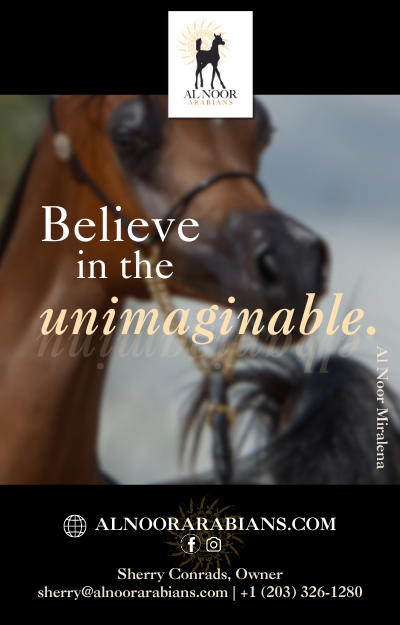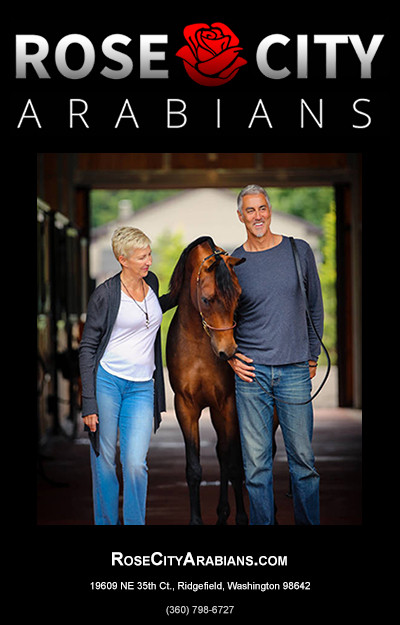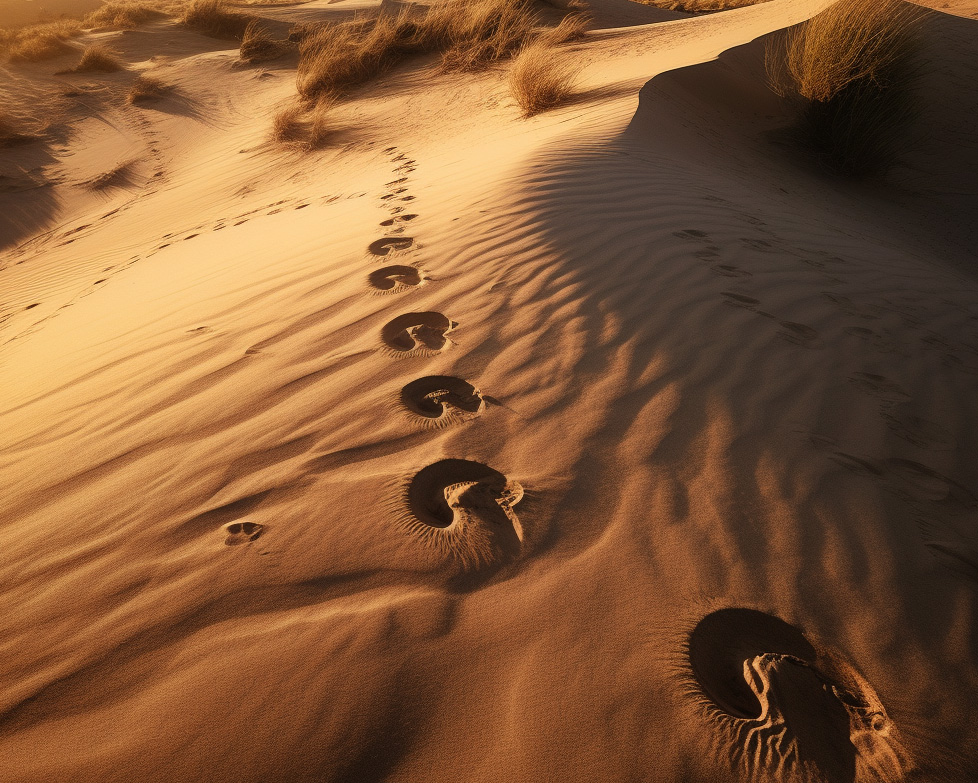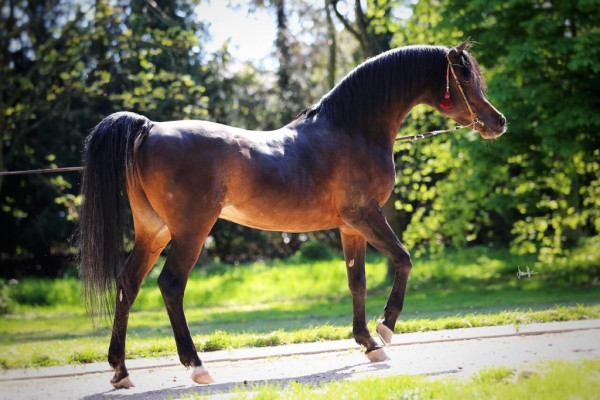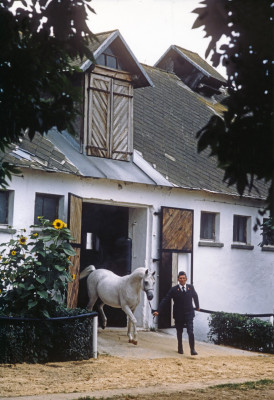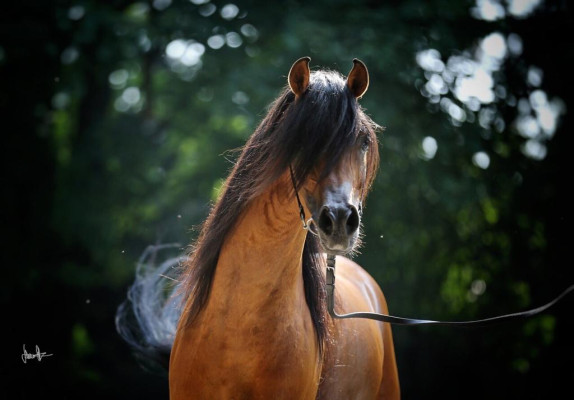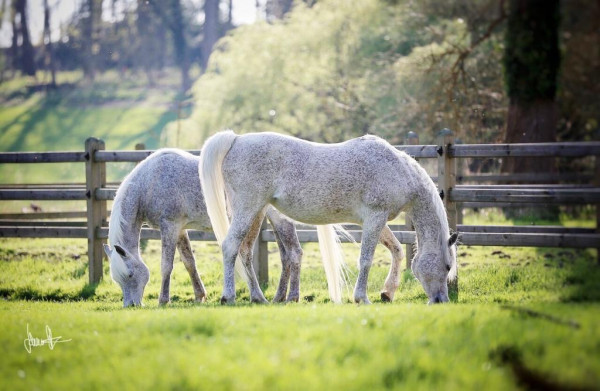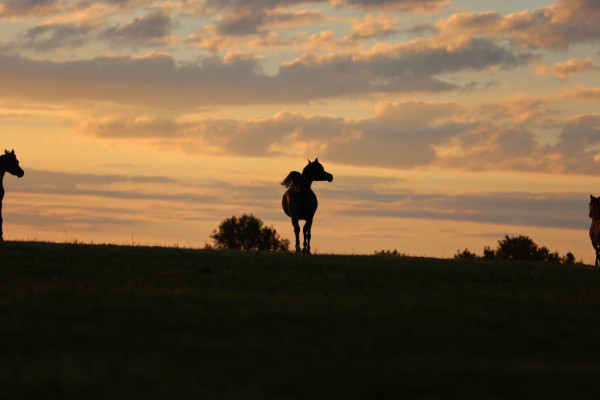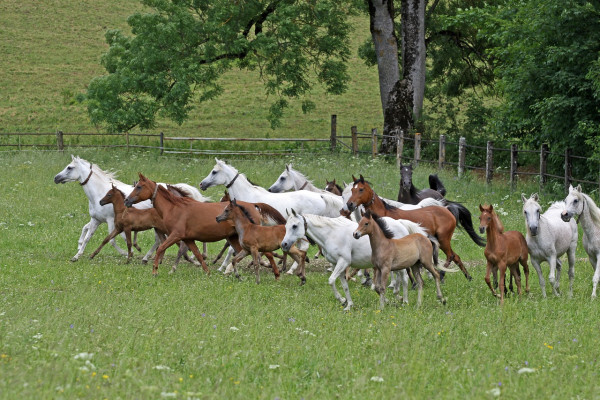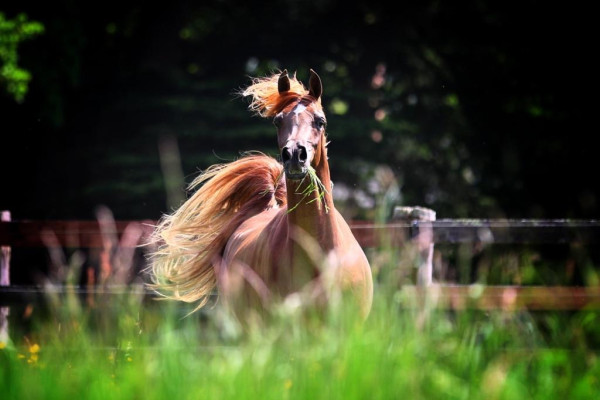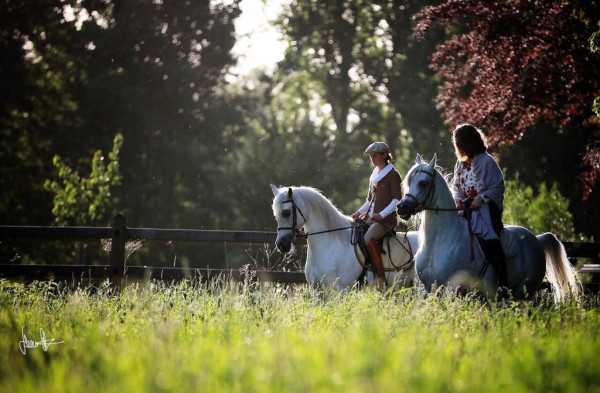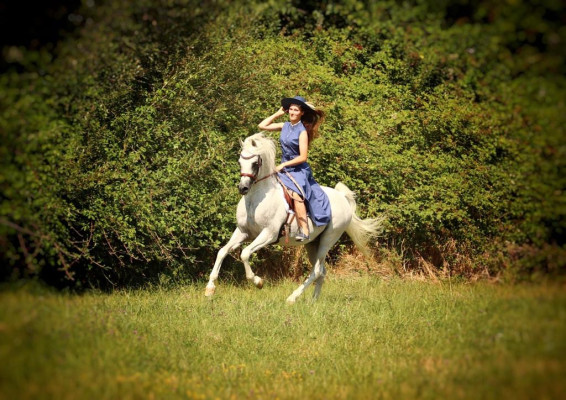The Fourth Of July – The Animal Owners’ least favorite Holiday
By Cindy Reich
If you have animals, the Fourth of July is the most dangerous night of the year for horses and dogs, too.
I’ve spent every Fourth that I can remember, monitoring horses for the whole night. When I was working at Cal Poly, the weanlings would be brought up from the pastures to stalls or pipe pens with older horses who had been through this routine before. We would station students and staff at every pasture and barn to monitor the horses. All of the pastures were surrounded by neighborhoods, and it seemed like every house was having a full-blown firework extravaganza.
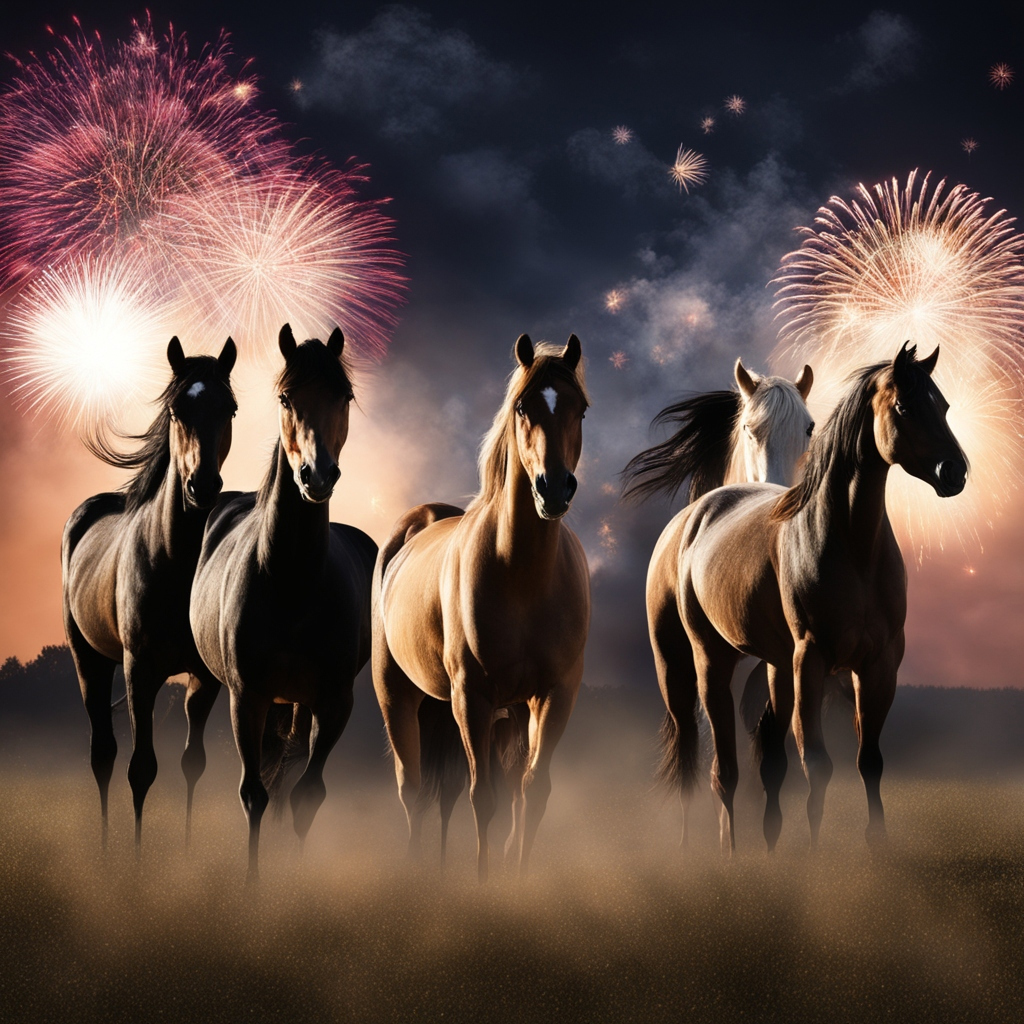
Our job was to let the horses know we were there and to be on hand if one were to run through a fence or get injured. As soon as the first bangs and flashes started, the horses would start running the pastures. My heart was sideways the whole time, waiting for a catastrophe.
There is nothing celebratory when horse people and fireworks meet. They are a menace and danger to horses and dogs. My sister’s dog was killed one Fourth, as it panicked from the noise and bolted out a door as someone came in. That night did not end well. If your dog is reactive, keep it confined to a room or small area.
For the horses, it can be overwhelming, and they go into flight mode, often running through fences, destroying their stalls or becoming so stressed out that they colic. The constant noise and flashes are terrifying for many of them. Even show horses who have seen a lot often get triggered by the loud unexpected noise and the flashes of light.
What are things to look out for and what can you do to try to minimize the damage?
For young horses that have never been exposed to fireworks, it’s best to have them in a controlled area.
Having older, steadier horses with them or nearby, will help. If the older horses don’t panic, the younger ones don’t stay in a panic. They will react, but the hope is that they calm down if no one else is panicking.
If a horse is accustomed to a stall, then a stall is a good idea. If a horse hasn’t been in a stall before, it is probably better off outside in a small area that can be controlled. Uncontrolled running in a big area can inflame the behavior as the flight response takes over. If the horses are in a barn, having fans on and a radio with classical music or some sort of calming music can help obscure the sound effects. Don’t play harsh or hard music, as it just adds to the din. If your horse is accustomed to ear plugs, it might be good idea to let them wear plugs for the night.
Keep all the lights on so that the flashes from the fireworks aren’t as visible and scary. If the windows and doors can be shut, that can be helpful.
Providing your horse with extra hay periodically through the night to distract them may also help. “High value” treats offered periodically, can also distract them.
Discuss with your veterinarian now about options for sedation if you have horses that are terrified of the noises and flashes. Some definitely are, and others handle it better. Sedation won’t work well if they are already ramped up, which is why the discussion and plans should be made now. It is also a good time to talk with your vet if your dog panics as well. There are over-the-counter calming supplements that might work as well, but speak to your veterinarian and make a plan.
Putting dogs in a darkened room with no windows, or windows blocked out, a radio or TV providing white noise may help. If the dog is crate trained, put him in a crate – it may make him feel more “safe.”
Do NOT try to go into a pen of panicked horses and try to calm or stop them. When we sat up outside the paddocks, it was only to be available if a horse was injured. A horse in full panic will not even see you, and you can be flattened very quickly. We would talk to the horses in loud, but calm voices, letting them know we were there and not excited.
If your only containment is a pasture or large area and you are expecting some panic, it may be a good idea to braid a plastic tag with identification information (name, phone number) into the mane in case the horses break through the fence. A breakaway halter with identification on it is even better, as the horse can be caught more easily with a halter.
When we lived in an arid area, my job as a youngster, was to monitor the dry pastures for pop bottle rockets or other fireworks that landed in the fields. They can start a fire and add to the danger. Now, many decades later, and still in arid areas, I monitor the dry fields. We always have hoses hooked up and water ready.
Even now, two days before the night, and with the fact that where I live currently, all fireworks are banned, including sparklers, the nights have been noisy with illegal fireworks going off. You can’t stop it, but by getting ready beforehand and using common sense you can minimize the effects.


